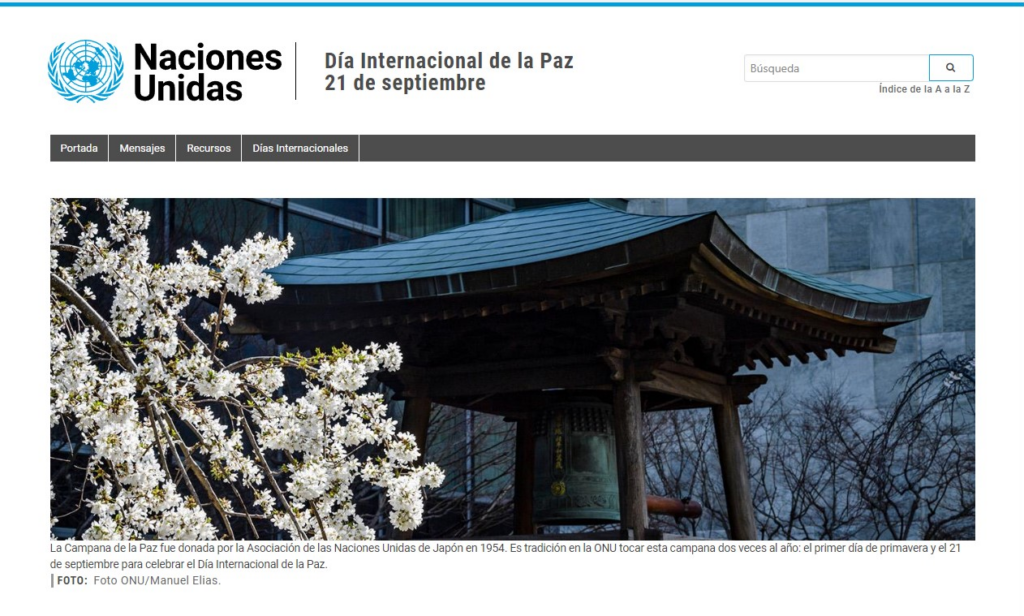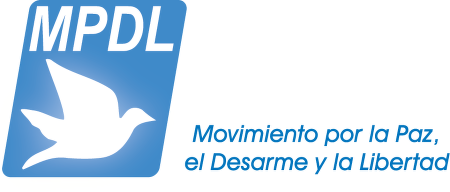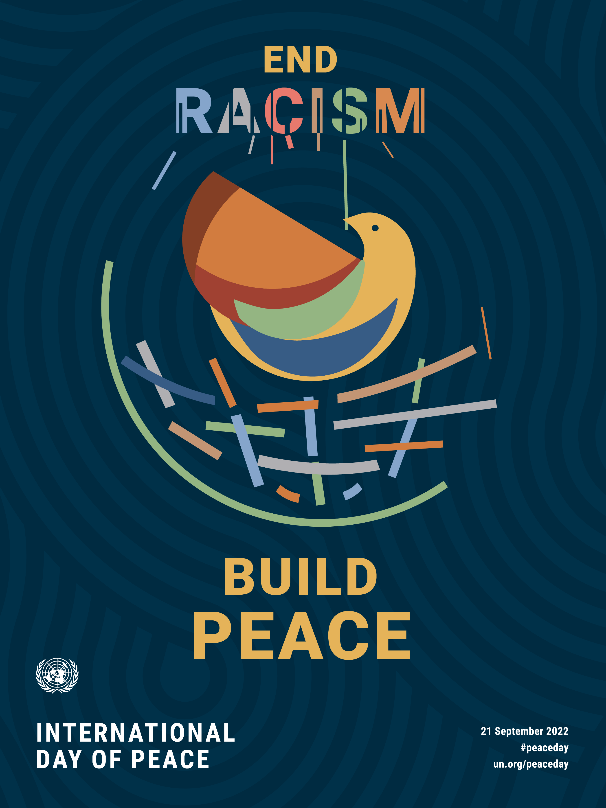Esta entrada también está disponible en: Aragonés Català Español Français English
CROQUETTE AND PEACE
One Christmas we invited a mediator from the United Nations to dinner and he left before dessert saying that our family’s situation was beyond repair. Before dessert. How desperate do you have to be to leave before the chocolate cake?
It’s also true that my mother had started throwing tomatoes at the sink with some fury and that my brother seemed to be taking arguments out of a Telecinco debate about the latest events in Big Brother 600 000 edition and it was getting out of hand.
The poor mediator didn’t know where to catch us, so he said that he couldn’t take it any more and that he saw a better future for Palestine and Israel than for us. He did, however, take home a lunch box with croquettes from my mother, because there is no conflict in the world that can stop you from wanting to eat some good croquettes, that’s just the way it is.
He left the house with four croquettes in his mouth at the same time, shaking his head and trembling as if he had just got out of the swimming pool on a January day in Canfranc and I felt like telling him that there had been many years of arguments and now it was hard to leave grudges behind and move on.
I’m sure this has happened to you too. Surely you have been angry at some time for something that happened a long time ago or for something that has been done to you many times, hasn’t it happened to all of us?
If that happens in any family, in a place where different ethnicities, peoples or simply people with different opinions live together, how can you not make a big fuss?
So I think of these mediators trying to bring about world peace and the truth is that I wouldn’t even know where to start. The only thing I can think of is to prepare a dinner of croquettes, which everyone likes, and that way we can start in a good mood and clear up whatever is needed.
You can also celebrate the 30th of January. Do you do it in your class? Read on to find out why this day is the School Day for Peace and Nonviolence.
Description
Peace is an oft-invoked idea and is always part of our best wishes and intentions. But unfortunately, our daily reality is far from these ideals. It is enough to read, listen or watch the news, what happens around us or in many parts of the world… to perceive the presence of violent attitudes and events.
In 1981, the United Nations established 21 September as the International Day of Peace. In 2001, the UN General Assembly unanimously decided to designate this Day as a day of non-violence and ceasefire. However, achieving true peace involves much more than laying down arms. It requires building societies in which all members feel they can develop. It involves creating a world in which all people are treated equally, regardless of race, creed, colour, status.
Further information:

The objectives and contents of this proposal can be related to International Day of Sport for Development and Peace.
In Aragon
In our autonomous community there is a long tradition of culture of peace. In the seventies and eighties of the 20th century, the risks related to the threat of nuclear weapons, the proximity of shooting ranges and the American base (at the height of the Cold War between the blocs led by the United States and the Soviet Union), favoured the consolidation of groups around conscientious objection and anti-militarism, such as the Movement for Peace and Disarmament.


In addition to this, and adapting to a context in which the role of the army has also evolved (at least in Spain), the Fundación Seminario de Investigación para la Paz has been operating since 1984: a study centre which, through seminars, courses, debates, research grants, meetings such as the Jornadas Aragonesas de Educación para la Paz, agreements with institutions, etc., tackles the issue from different disciplines.
More interesting information on SEIPAZ’s activities can be found in the SEIPAZ website
A detail
For quite some time now, on 30 January (the anniversary of Mahatma Gandhi’s death), the School Day for Peace and Nonviolence has been celebrated in schools (especially in Primary Education). The values implemented in that commemoration are fully interchangeable with those of this International Day.
Further information
The theme of this International Day for 2022 is “End Racism. Build Peace”. Racism as a driver of conflict. Among the messages that emerge from this upcoming celebration, the United Nations website for this International Day reads:

As conflicts continue to erupt around the world forcing many people to flee, we have also seen incidents of discrimination and racism at borders. (…) There has been an increase in hate speech and violence towards racial minorities.
We all have a role to play in promoting peace. And the fight against racism is crucial to achieving this.
Let us work together to dismantle the structures that entrench racism in our environments. Celebrate peace. Let us support movements that fight for equality and human rights and denounce hate speech, both online and offline. Let us rebuild trust and social cohesion through education and restorative justice. (…)
Join the United Nations in our quest to realise the vision of a world free of racism and racial discrimination. A world where compassion and empathy outweigh suspicion and hatred. A world of which we can be truly proud.
Suggestions for teachers
Viewing and sharing music video clips such as the following:
- Antonio Flores: I would not hesitate (No dudaría).
- Paul McCartney: Pipes of Peace.
- John Lennon: Give Peace to Chance.
- Culture Club: War is Stupid.
In addition…
Propose a small research project. A conflict that is currently taking place, either between states, or within a country between different actors, or situations of rebellion or repression… Once the object of study has been selected, you can suggest an analysis of the parties in conflict, what are their strengths, how long has it been going on, what is the cause of the conflict, do the fighting actors have other support, what are the consequences for the civilian population… are there refugees? What are the consequences for the civilian population, are there refugees, is there international pressure, from the United Nations, the European Union, for example, and is there any possibility of a solution?
Recommendation: of course, the war provoked by the Russian invasion of Ukraine will receive the most attention, but, without undermining the seriousness of this conflict, it is also recommended to pay attention to other conflicts of lesser intensity, in more distant latitudes, or of singular and alarming duration, which are gradually ceasing to be covered by the media (as if, because they are not in the news, they no longer exist). It may also be interesting to reflect on this.
Objectives that this proposal helps to achieve
ESO:
- To assume responsibly their duties, to know and exercise their rights in respect for others, to practice tolerance, cooperation and solidarity among people and groups, to exercise dialogue, strengthening human rights and equal treatment and opportunities between women and men, as common values of a plural society, and to prepare for the exercise of democratic citizenship.
- To value and respect the difference between the sexes and the equality of rights and opportunities between them. Reject discrimination against people on grounds of sex or any other personal or social condition or circumstance. Reject stereotypes that discriminate between men and women, as well as any manifestation of violence against women.
Baccalaureate:
- To exercise democratic citizenship, from a global perspective, and acquire a responsible civic conscience, inspired by the values of the Spanish Constitution, as well as by human rights, which fosters co-responsibility in the construction of a just and equitable society.
- To consolidate personal and social maturity that allows them to act responsibly and autonomously and to develop their critical spirit. To foresee and resolve personal, family and social conflicts peacefully.
- To promote effective equality of rights and opportunities between men and women, to analyse and critically assess existing inequalities and discrimination, and in particular violence against women, and to promote real equality and non-discrimination of people for any personal or social condition or circumstance, with special attention to people with disabilities.
Subjects with which it can be linked
- Geography and History / Ethical values (ESO, 1st and 2nd cycles)
- Education for citizenship and human rights (ESO, 2nd cycle)
- Baccalaureate: To be assigned according to modality
Development of competences
- Social and civic competences
